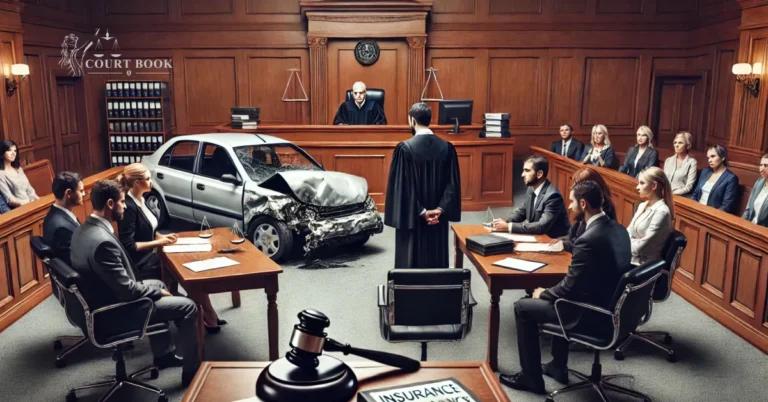The Punjab & Haryana High Court has ruled that victims of motor vehicle accidents do not need to prove negligence of the offending driver to claim compensation under Section 163-A of the Motor Vehicles Act, 1988. The court emphasized that the compensation is payable based on a structured formula, regardless of fault determination.
Section 163-A of the Motor Vehicles Act
Section 163-A of the Motor Vehicles Act provides a no-fault liability mechanism for victims of road accidents. It states that:
Read Also:- Punjab & Haryana High Court Imposes ₹25,000 Fine on Contemptuous Petition Against Judicial Officers
The owner of the motor vehicle or the authorized insurer is liable to pay compensation in cases of death or permanent disablement due to an accident involving a motor vehicle.
The claimant is not required to establish that the accident occurred due to negligence, wrongful act, or default of any person.
The provision aims to ensure that accident victims receive compensation without undergoing prolonged litigation to prove fault.
Read Also:- Supreme Court Rejects Gurmeet Ram Rahim's Plea to Halt 2015 Sacrilege Trials
The bench comprising Justice Sureshwar Thakur and Justice Kirti Singh, while deciding a batch of petitions filed by United India Insurance Co. Ltd., ruled:
"In terms of sub-section (2) of Section 163-A of the Act of 1988, the determination of fault or negligence is not required. A petition filed under this provision does not necessitate fault-based compensation principles."
The ruling came in response to a case where the insurance company challenged the tribunal's award based on a common FIR registered in 2013 regarding an accident caused by a parked tractor without warning signs. The tribunal had granted compensation under Section 163-A.
Read Also:- Supreme Court Orders ₹5 Lakh Compensation Three Individuals for Wrongful Conviction in Haryana Murder Case
The accident, which led to multiple compensation claims, occurred when a Mahindra Bolero Jeep collided with a stationary tractor-trailer parked on a road without reflectors or warning signals. Due to an oncoming vehicle's glare, the driver failed to notice the parked tractor, leading to a severe collision and multiple injuries.
The claimants filed petitions before the Motor Accident Claims Tribunal (MACT), Karnal, under Section 163-A of the Act. The tribunal awarded compensation without considering the issue of negligence.
The court also examined the issue of medical expenses under Section 163-A. It noted conflicting views from different benches:
In cases such as The Oriental Insurance Co. Ltd. vs. Smt. Kulwinder Kaur (2013) and United India Insurance Co. Ltd. vs. Ved Parkash (2017), courts allowed medical expenses beyond the prescribed limit.
Conversely, in Bajaj Allianz General Insurance Co. Ltd. vs. Sonu (2016), a different bench held that medical expenses should be restricted to Rs. 15,000 under the structured formula.
Read Also:- Registry Cannot Delete a Case from Cause List Without Court's Order Supreme Court
In the present case, the court ruled that if documentary evidence proves actual medical expenses incurred, the insurance company cannot dispute them.
"The insurance company cannot challenge the award if documentary evidence supports the medical expenses incurred by the claimants," the bench stated.
Structured Formula for Compensation
The court reiterated that compensation under Section 163-A follows a structured formula provided in the Second Schedule of the Act. Under this schedule:
Rs. 50,000 is payable in case of death.
Rs. 25,000 is payable for permanent disability.
Additional compensation may be awarded based on medical bills if proven with valid documents.
Although the Second Schedule was amended in 2019, the court clarified that it is irrelevant in this case as the accident occurred in 2013.
Read Also:- Son-In-Law Ordered to Vacate Senior Citizen's Property: Madhya Pradesh High Court Ruling
Negligence Need Not Be Proven: Victims can claim compensation under Section 163-A without proving the offending driver’s fault.
Fixed Compensation Structure: The compensation follows a structured formula outlined in the Second Schedule.
Medical Expenses Allowed: If backed by valid medical documents, claimants can receive additional compensation for medical expenses.
Insurance Company Cannot Dispute Medical Claims: Once medical expenses are proven with documentary evidence, insurers cannot challenge them.
Precedence for Future Cases: This ruling sets a precedent for similar accident claims under Section 163-A.















